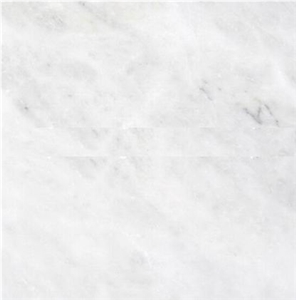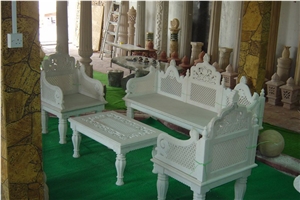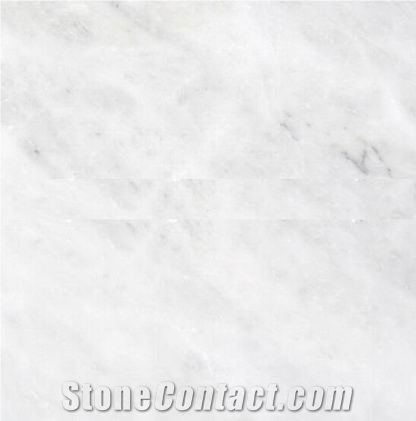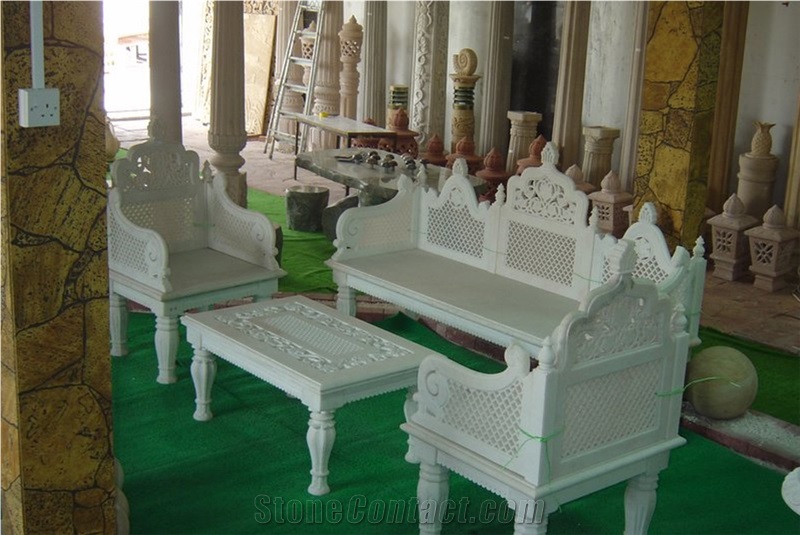Taj White Marble
 India
India
Taj White is a kind of white marble quarried in India. This stone is especially good for Counter tops and bars, Interior wall panels, Water walls and fountains and other design projects. It also called White Taj Marble . Taj White Marble can be processed into Polished, Sawn Cut, Sanded, Rockfaced, Sandblasted, Tumbled and so on.

Can India's Taj White Marble be used outdoors?

Does water soak into Taj White Marble countertop?

Is Taj White Marble suitable for high-traffic area floors?

What is the typical thickness of Taj White Marble kitchen countertops?

What is the average density of India's Taj White Marble?

Can India's Taj White Marble be used exterior applications in hot climates?

Can I cut Taj White Marble tiles myself?

Can Taj White Marble be used for a shower wall?

What does vinegar do to Taj White Marble countertop?

Can India's Taj White Marble be used in a dining room?

What is the coefficient of friction of Filled India's Taj White Marble tiles?

How can I clean and shine Taj White Marble countertops?

Will water stain on white marble go away?

What is the best natural cleaner for Taj White Marble countertops?

Can I use Taj White Marble as a table top?

Are there color variations of India's Taj White Marble?

How can I get scratches out of Taj White Marble countertop?

Do water stains come out of Taj White Marble?

Can Taj White Marble be used for exterior stairs?

What grade is India's Taj White Marble?

Is Taj White Marble tile waterproof?

Is India's Taj White Marble an expensive stone?

How thick is India's Taj White Marble slabs?

Do wine stains come out of Taj White Marble bar top?

Can I use Taj White Marble as a cutting board?

Can India's Taj White Marble be used in landscaping?
-

XIAMEN REFINESTONE INDUSTRIAL CO.,LTD.
 China
China
 14YRDiamond members are premium members on platform, providing members with comprehensive approach to promoting their products, increasing products exposure and investment return to maximize.
14YRDiamond members are premium members on platform, providing members with comprehensive approach to promoting their products, increasing products exposure and investment return to maximize.
 Verified Supplier is for prove company authenticity,including business license,trade license and effective office space,to enhance buyers' trust to suppliers and their products, reducing communication costs.
Verified Supplier is for prove company authenticity,including business license,trade license and effective office space,to enhance buyers' trust to suppliers and their products, reducing communication costs.
Contact Supplier
-

-

-

-

 India
India
Contact Supplier
-

-

 China
China
 8YRDiamond members are premium members on platform, providing members with comprehensive approach to promoting their products, increasing products exposure and investment return to maximize.
8YRDiamond members are premium members on platform, providing members with comprehensive approach to promoting their products, increasing products exposure and investment return to maximize.
 Verified Supplier is for prove company authenticity,including business license,trade license and effective office space,to enhance buyers' trust to suppliers and their products, reducing communication costs.
Verified Supplier is for prove company authenticity,including business license,trade license and effective office space,to enhance buyers' trust to suppliers and their products, reducing communication costs.
Contact Supplier
-

-

-

 China
China
 8YRDiamond members are premium members on platform, providing members with comprehensive approach to promoting their products, increasing products exposure and investment return to maximize.
8YRDiamond members are premium members on platform, providing members with comprehensive approach to promoting their products, increasing products exposure and investment return to maximize.
 Verified Supplier is for prove company authenticity,including business license,trade license and effective office space,to enhance buyers' trust to suppliers and their products, reducing communication costs.
Verified Supplier is for prove company authenticity,including business license,trade license and effective office space,to enhance buyers' trust to suppliers and their products, reducing communication costs.
Contact Supplier
The request includes: 1. surface finished, size 2. quantity required










 Spain
Spain